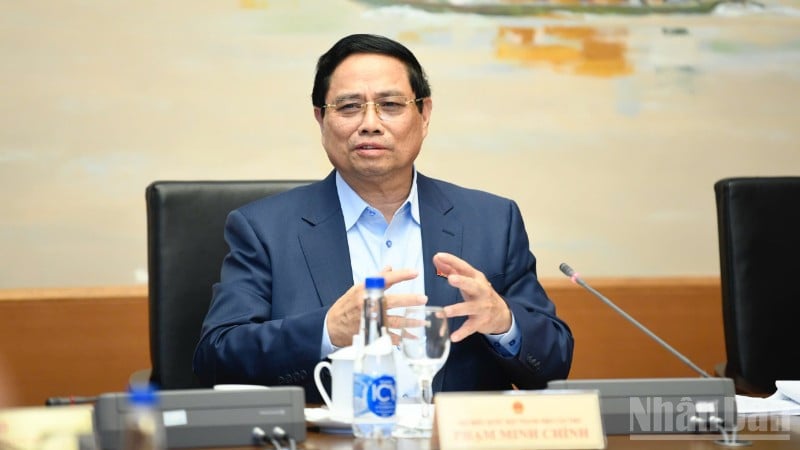
National unity is the fulcrum of development.
On the afternoon of November 4, at the discussion session in the National Assembly group on the draft document to be submitted to the 14th National Congress of the Party, Prime Minister Pham Minh Chinh discussed a number of related issues.
The head of the Government emphasized that this draft document was carefully constructed, crystallizing the intelligence of Party committees at all levels, scientists , and practical activists, and is continuing to receive widespread public opinion.
The Prime Minister affirmed that this is a way to promote the intelligence of the entire nation, and has been applied by our Party in many recent terms. “Today, the General Secretary has thoroughly grasped the important new points, which are concise, succinct, condensed, focused, straight to the point, comprehensive and all-encompassing,” the Prime Minister emphasized.
Prime Minister Pham Minh Chinh affirmed that national solidarity is an important pillar of the Vietnamese people, a decisive factor in creating strength in every revolutionary stage. “Uncle Ho said solidarity, solidarity, great solidarity; solidarity brings strength. Each stage has its own characteristics, but in the end, solidarity is to serve national interests. Without solidarity, there is no strength,” the Prime Minister emphasized.
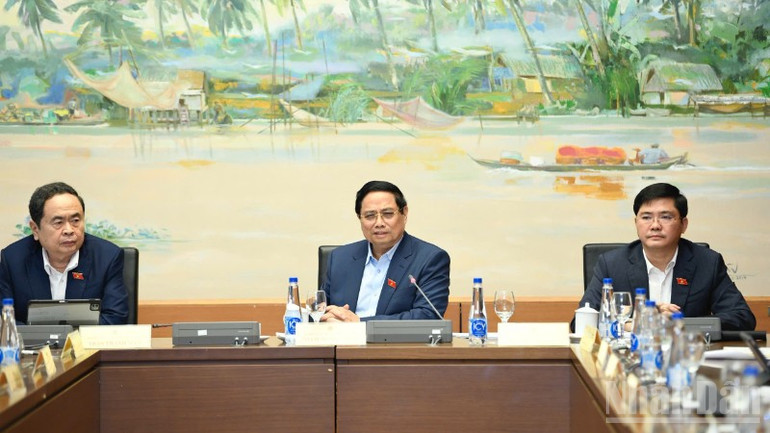
The Prime Minister cited that at international conferences, Vietnam's spirit of solidarity has always received strong support. Even in the Southeast Asian region, the spirit of solidarity and upholding multilateralism is also the foundation for cooperation and mutual development.
Regarding infrastructure development, the Prime Minister said that since the 11th Congress, our Party has identified three strategic breakthroughs and now, entering the 14th term, these breakthroughs still retain their value. “We need to enhance the content, value and effectiveness of these three breakthroughs, turning that strength into a driving force for economic development,” the Prime Minister said.
According to the Prime Minister, this term investment for development has increased by 55% compared to the previous term, increased revenue and savings in expenditure have been put into these three breakthroughs. Importantly, ministries, branches and localities have been more proactive in building institutions, because institutions are the driving force, resources and competitiveness of the country; strategic infrastructure for transportation, energy, health care, education, culture, sports, etc. is being actively implemented.
“In the future, when building the North-South high-speed railway, which the National Assembly has approved in principle, we must allocate resources and also clearly define the tasks of the Central and local governments, where the capital comes from, and what to do,” the Prime Minister emphasized.
According to the Prime Minister, decentralization must go hand in hand with resource allocation and strengthening supervision and inspection, upgrading the implementation capacity of localities, ministries and branches; and to implement it, not only the State but also the private sector must work together, as well as rely on public-private partnership.
Along with that, law making must come from practice, which is both a resource and a national competitiveness. The Prime Minister said that the thinking of law making must be innovative, "not that if it cannot be managed, then it must be banned", but must be managed for development, taking practice as a measure.
The Prime Minister gave examples of land clearance compensation, contractor appointment or investment congestion handling all requiring flexible approaches, harmonizing the interests of the State, businesses and people. “Lawmaking therefore must be both closely following reality and promoting the spirit of responsibility of those who implement it,” the Prime Minister stated.
Fast, sustainable development, focusing on people and culture
Prime Minister Pham Minh Chinh emphasized that rapid development must go hand in hand with sustainable development, ensuring macroeconomic stability, budget deficit safety, debt repayment capacity, and linking growth with economic scale.
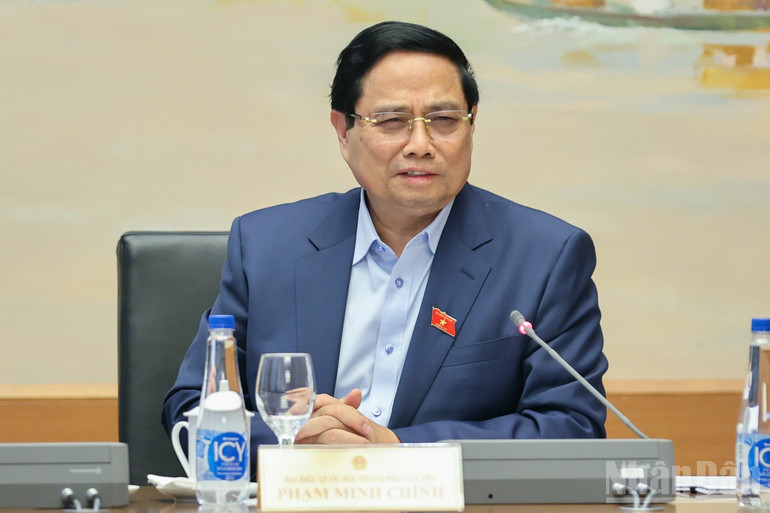
The Prime Minister cited examples from Japan, South Korea, China, Taiwan (China)… all of which had periods of high growth to create breakthroughs. “Vietnam must also determine that high growth, although difficult, has room to do so; otherwise, it will be difficult to complete the two hundred-year goals,” said the Prime Minister.
Regarding social security, the Prime Minister said that during this term, social security spending accounts for 17% of GDP, equivalent to 1.1 quadrillion VND. Vietnam has completed the millennium goals 10 years ahead of schedule and has completed the elimination of temporary and dilapidated houses, which has been highly appreciated by the international community.
From implementation practice, the Government has proposed integrating 3 national target programs into 1 program, delegating decision-making power to localities, ensuring that policies reach people in remote, isolated, and ethnic minority areas.
Regarding the operation of the two-level local government model from July 1, the Prime Minister assessed this as a big step forward in the process of arranging and innovating the administrative apparatus, shifting from a state of management to creation and serving the people, based on the digital transformation platform.
The Prime Minister said that this was a victory after a process of restructuring the country, demonstrating a strong determination to innovate in state management. However, he also pointed out that a system that has been formed and operated for the past 80 years cannot change quickly to achieve the set goals immediately.
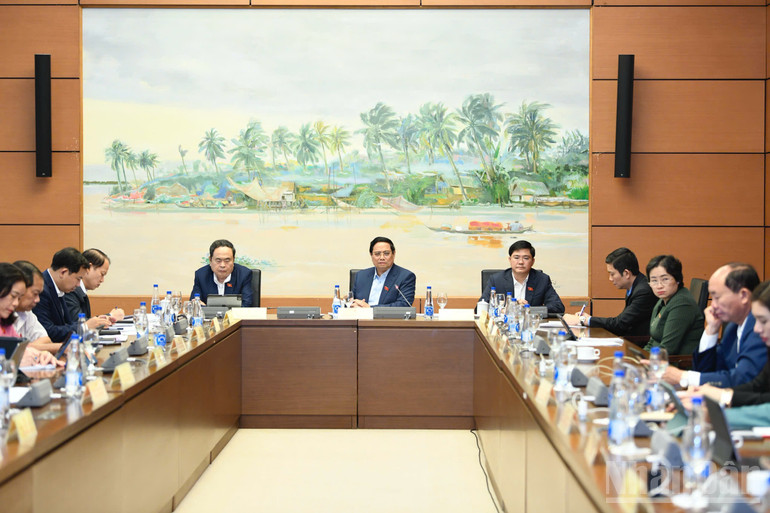
The Prime Minister emphasized that the motto is “not being hasty, not being perfectionist and not missing opportunities”. The process of improvement must be based on functions, tasks and powers to form a suitable apparatus; from there, build job positions, arrange staff and continue to improve corresponding mechanisms and policies.
According to the Prime Minister, the current limitation lies in the grassroots staff: The workload is high, while the level of management, law, expertise and digital transformation is still uneven. "Some places have good content, some places have good content, and some places have poor content in all four areas. If you lack something, you have to train it," Prime Minister Pham Minh Chinh stated.
The Prime Minister affirmed that culture is an endogenous strength, the spiritual foundation of society, guiding the nation, together with Marxism-Leninism and Ho Chi Minh Thought, forming the Party's ideology and guidelines. Culture, education and people need to be exploited and developed more strongly to serve the country's sustainable development.
Regarding education and training, the Prime Minister emphasized that this is the top national policy and a great achievement of our people and Party. “Education now must be integrated; our children only need an account and a phone to go to school, and only need a language to travel around the world. That is why we have determined that English is the second language,” the Prime Minister stated.
Along with that, the head of the Government also emphasized the need to raise the level of basic sciences and comprehensive training in ethics, intelligence, physique and aesthetics, affirming that Resolution 29 has identified and Resolution 71 has raised the level of this issue.
Regarding the environment and climate change, the Prime Minister said that this is a global issue, requiring solidarity and multilateral cooperation. Vietnam needs to perfect the legal system on environmental protection, mobilize resources, technology and human resources, in which science and technology are the foundation for efficient use of resources and adaptation to climate change.
Source: https://nhandan.vn/phat-huy-suc-manh-dai-doan-ket-hoan-thien-the-che-thuc-day-tang-truong-nhanh-va-ben-vung-post920559.html


![[Photo] Ca Mau "struggling" to cope with the highest tide of the year, forecast to exceed alert level 3](https://vphoto.vietnam.vn/thumb/1200x675/vietnam/resource/IMAGE/2025/11/04/1762235371445_ndo_br_trieu-cuong-2-6486-jpg.webp)
![[Photo] Panorama of the Patriotic Emulation Congress of Nhan Dan Newspaper for the period 2025-2030](https://vphoto.vietnam.vn/thumb/1200x675/vietnam/resource/IMAGE/2025/11/04/1762252775462_ndo_br_dhthiduayeuncbaond-6125-jpg.webp)
![[Photo] Ho Chi Minh City Youth Take Action for a Cleaner Environment](https://vphoto.vietnam.vn/thumb/1200x675/vietnam/resource/IMAGE/2025/11/04/1762233574890_550816358-1108586934787014-6430522970717297480-n-1-jpg.webp)
![[Photo] The road connecting Dong Nai with Ho Chi Minh City is still unfinished after 5 years of construction.](https://vphoto.vietnam.vn/thumb/1200x675/vietnam/resource/IMAGE/2025/11/04/1762241675985_ndo_br_dji-20251104104418-0635-d-resize-1295-jpg.webp)







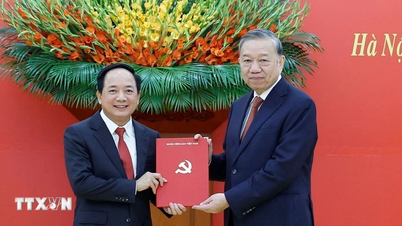

![[Photo] Prime Minister Pham Minh Chinh chairs the 20th meeting of the National Steering Committee on combating illegal fishing.](https://vphoto.vietnam.vn/thumb/402x226/vietnam/resource/IMAGE/2025/11/04/1762267178314_dsc-0115-jpg.webp)
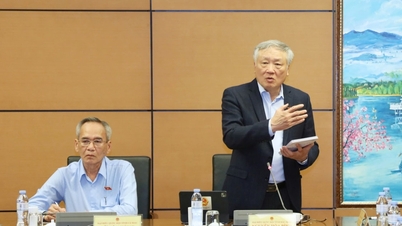





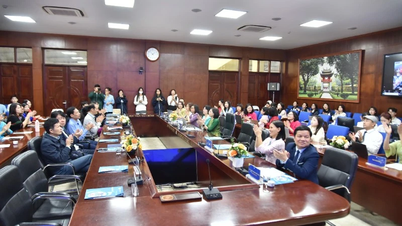
![[Video] Ministry of Education and Training announces the 2026 university and college enrollment plan](https://vphoto.vietnam.vn/thumb/402x226/vietnam/resource/IMAGE/2025/11/04/1762270484541_dung00-18-42-03still007-jpg.webp)

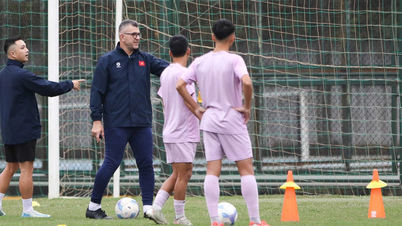






















































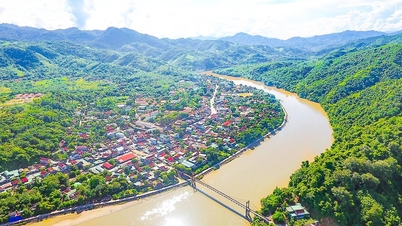


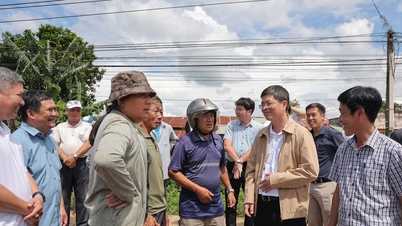













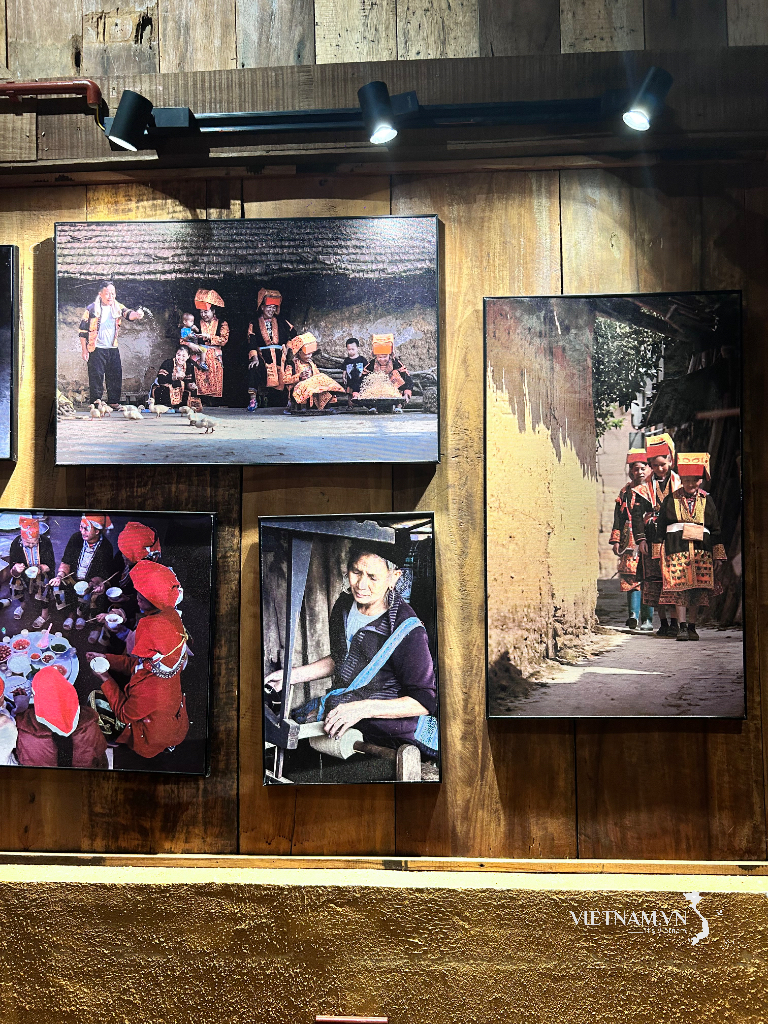

Comment (0)